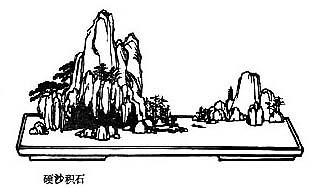論
語
Lun Yu 
 – The Analects of Confucius
– The Analects of Confucius
The Master discusses with his disciples and unveil his preoccupations with society. Tr. Legge (en), Lau (en) and Couvreur (fr).
Lunyu XVII. 8. (455)
Knowledge, acquired by learning, is necessary to the completion of virtue, by preserving the mind from being beclouded.
1. The Master said, "Yû, have you heard the six words to which are attached six becloudings?" Yû replied, "I have not."
2. "Sit down, and I will tell them to you.
3. "There is the love of being benevolent without the love of learning;– the beclouding here leads to a foolish simplicity. There is the love of knowing without the love of learning;– the beclouding here leads to dissipation of mind. There is the love of being sincere without the love of learning;– the beclouding here leads to an injurious disregard of consequences. There is the love of straightforwardness without the love of learning;– the beclouding here leads to rudeness. There is the love of boldness without the love of learning;– the beclouding here leads to insubordination. There is the love of firmness without the love of learning;– the beclouding here leads to extravagant conduct."
Legge XVII.8.
The Master said, 'Yu, have you heard about the six qualities and the six attendant faults?' 'No.' 'Be seated and I shall tell you. To love benevolence without loving learning is liable to lead to foolishness. To love cleverness without loving learning is liable to lead to deviation from the right path. To love trustworthiness in word without loving learning is liable to lead to harmful behaviour. To love forthrightness without loving learning is liable to lead to intolerance. To love courage without loving learning is liable to lead to insubordination. To love unbending strength without loving learning is liable to lead to indis- cipline.'
Lau [17:8]
Le Maître dit : « Iou1, connais-tu les six paroles2 et les six ombres3 ? » Tzeu lou se levant, répondit : « Pas encore. – Assieds-toi, reprit Confucius, je te les dirai. Le défaut de celui qui aime à se montrer bienfaisant, et n'aime pas l'étude, c'est le manque de discernement. Le défaut de celui qui aime le savoir, et n'aime pas l'étude, c'est de tomber dans la futilité. Le défaut de celui qui aime à tenir ses promesses, et n'aime pas l'étude, c'est de nuire aux autres4. Le défaut de celui qui aime la franchise, et n'aime pas l'étude, c'est d'être tranchant. Le défaut de celui qui aime à montrer du courage et n'aime pas l'étude, c'est de troubler l'ordre. Le défaut de celui qui aime la fermeté d'âme, et n'aime pas l'étude, c'est le fanatisme. »
Couvreur XVII.8.
六つの美徳も、一歩誤れば、六つの弊害をもたらすことになる。
仁:仁だけにこだわって、学問(教養)を怠れば、おろかな愛となる。
知:知識を鼻にかけるだけで、学問を怠れば、単なる物知り人間になる。
信:信義だけにこだわり、学問を怠れば、かえって人を傷つけることにな
る。
直:率直なだけで、学問しなければ、融通がきかなくなる。
勇:勇気があるだけで、学問しなければ、秩序を乱す。
剛:剛強なだけで、学問しなければ、平常心を失う。

The Analects of Confucius – Lun Yu XVII. 8. (455) – Chinese on/off – Français/English
Alias the Lunyu, the Lun Yü, the Analects, les Entretiens du maître avec ses disciples.
The Book of Odes, The Analects, Great Learning, Doctrine of the Mean, Three-characters book, The Book of Changes, The Way and its Power, 300 Tang Poems, The Art of War, Thirty-Six Strategies
Welcome, help, notes, introduction, table.
Index – Contact – Top























